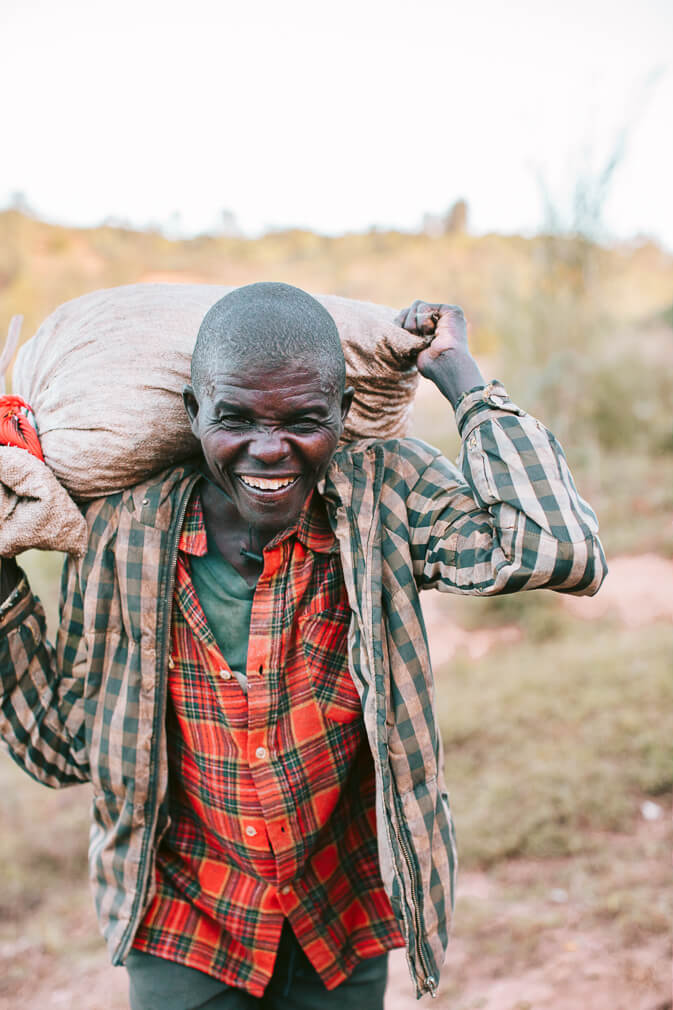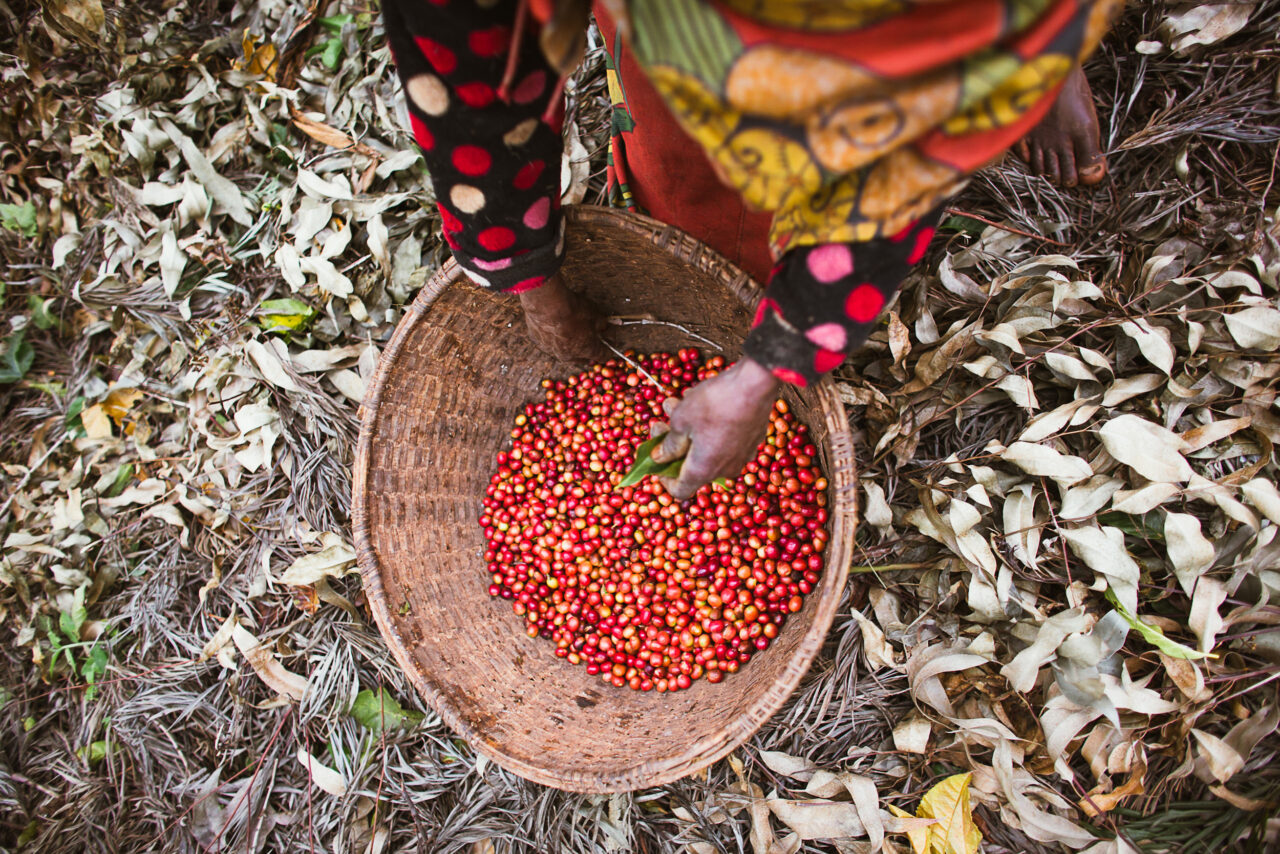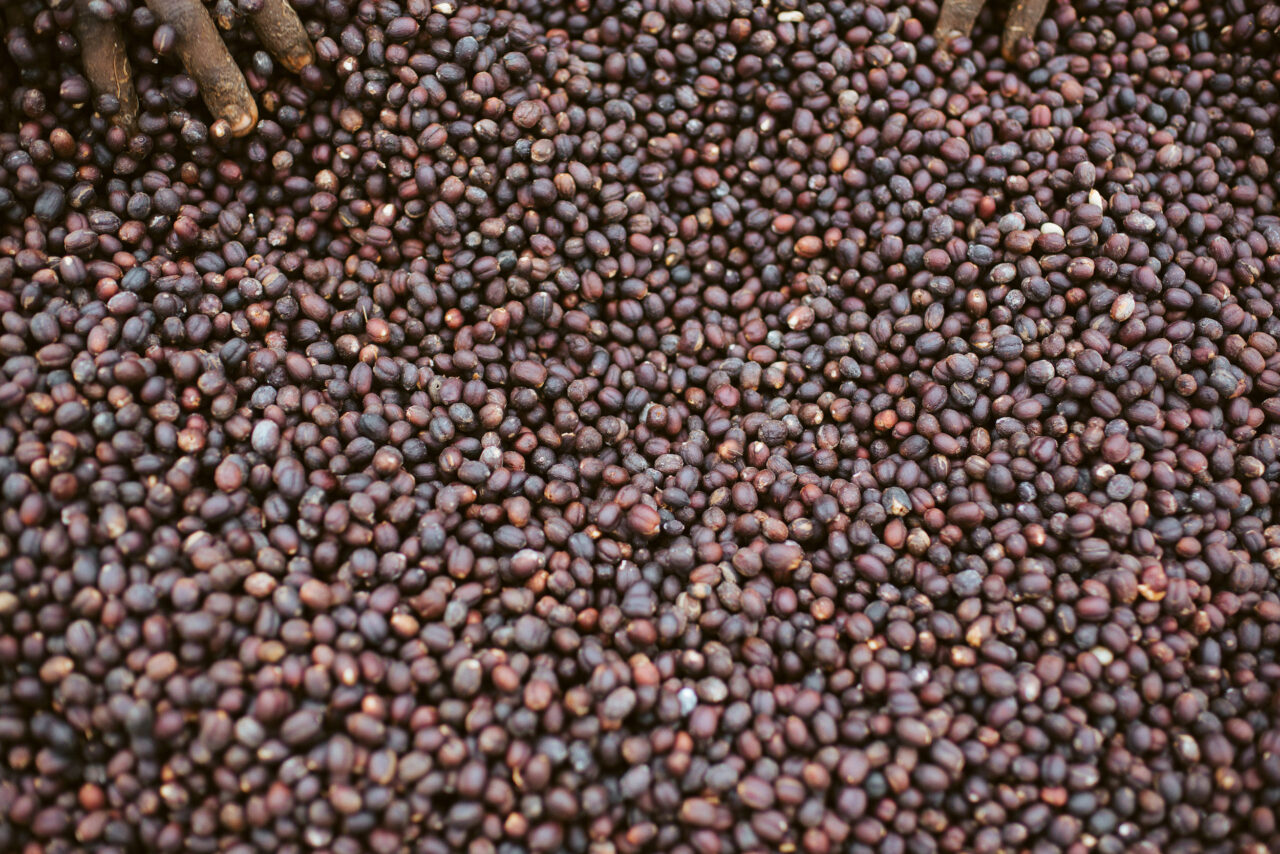In 2013, we built our first washing station, Bukeye, and produced our first bag of Burundi coffee. During that harvest season, the volume of coffee cherries getting delivered to Bukeye far outstripped our small washing station’s capacity to produce coffee. It turned out that coffee farming families were coming from far and wide, travelling more than three hours by foot over slippery and broken roads to reach Bukeye; a washing station with balanced scales that paid a fair price for coffee cherries.
Vincent Nyandwi is just one of many coffee farmers that we met last coffee harvest who had walked for hours to deliver his cherries. He had to choose between walking fifteen kilometers from his home to reach Bukeye Washing Station, or five kilometers to our small cherry collection point…all while carrying a forty kilogram bag of coffee cherries on his back.

The dedication of coffee farmers like Vincent to producing quality coffee stood out to our team, both in the field and on the cupping table. Every year since then, we have been trying to bring a washing station closer to these rural farming communities.
“Ninga was one of the first hills that we visited before founding Long Miles and deciding to build our own washing station[s]. After visiting the region, we fell in love with the coffee’s flavor profile on the cupping table. Building a washing station on Ninga hill would open up the possibility of working with over 2,000 neighboring coffee growing families who, up until now, have had to walk for kilometers to reach the nearest washing station. Ninga’s proximity to the Kibira Forest also opened up the opportunity to plant green belts of trees extending from the forest to the hill, helping to improve soil health and encouraging the practice of shade-grown coffee.” – Ben Carlson, co-founder of Long Miles Coffee.
Having a washing station closer to Ninga hill means that coffee farmers will be able to spend less time travelling to deliver their cherries after the many hours spent harvesting them. The time between cherry picking and then cherry processing will also be shortened; a helpful step towards improving the coffee’s quality. Ninga Washing Station will help us to build long-term relationships with coffee farming families in the region, provide neighboring communities with job opportunities and the access to farmer education.

In 2017, we bought a piece of land seated at 1900 masl, a fifteen kilometer drive from our Bukeye Washing Station. The land is flanked by the Nkokoma River, which means that fresh water will run through the McKinnon to pulp and wash the coffee parchment. Little did we know that significant changes in the country’s coffee regulatory board that year would cause a delay in the build out of the washing station.
It took us close to three years to check off all the necessary paperwork and cross the bureaucratic red tape in order to start producing coffee at our Ninga Washing Station site. With the opening of coffee harvest in April and forty-five newly built drying tables, we started producing the first natural processed micro-lots of the season.
During the natural process, coffee cherries are floated and hand-sorted after being delivered by coffee farmers to the washing station site, then taken straight to the drying tables. The whole coffee cherry spends between twenty-five to thirty days drying in its skin (depending on the weather), slowly turning from deep red to a prune-like purple-black color until fully dry; reaching the ideal 10.5% moisture level.

This coffee harvest, some farming families from Ninga hill continued to deliver their cherries to Bukeye Washing Station. These cherries were processed as both fully washed and natural micro-lots at Bukeye. Other families who grow their coffee in the same region decided to deliver their harvest to our new Ninga Washing Station site. These cherries were processed as sundried naturals. Come next year’s coffee harvest, all of the cherries grown and harvested on Ninga hill will be processed at Ninga Washing Station.
You might notice that two new coffees have been added to our fold this year: Bumba and Giku hill. These coffees were processed as sundried naturals at our Ninga Washing Station site along with the coffee cherries from Ninga hill that were delivered there.
It takes a lot of time, resources and people to build a washing station in Burundi. It’s our hope to see Ninga Washing Station built to completion in time for next year’s coffee harvest season.
The next time that you find a bag of roasted Ninga, Bumba or Giku coffee, drink a cup at your favorite local café or brew one of these coffees at home, please let us know! We would love to hear what you think.

